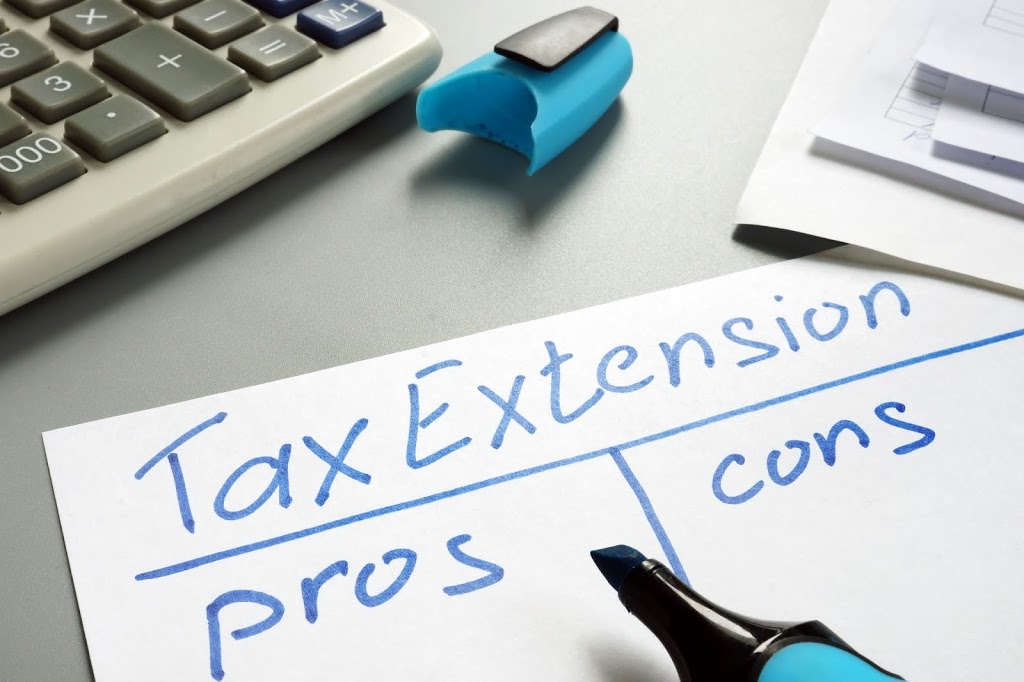If you need more time to finish filing your taxes, it can come as a great relief that the Internal Revenue Service offers a tax deadline extension. First, the IRS has given a cushion of an additional month to get taxes in, but there’s also an extension beyond that date. The extension deadline allows those who request more time to file by October 15.
But does a filing deadline mean you have more time to pay? What are the advantages and disadvantages of going beyond this year’s already extended deadline of May 17, 2021, to the fall?
In this guide, we’ll look at the pros and cons of filing for a federal tax extension.
How to Apply for A Federal Tax Extension
With the pandemic and its associated economic challenges, it’s understandable that many people may be having a hard time getting their finances in order in time for Tax Day. So if the May 17 date still doesn’t afford you enough time to get your taxes filed, you can request an extension using IRS Form 4868 which asks the Internal Revenue Service (IRS) to give you additional time to file your personal tax return.
But is taking this additional time in your best interest?
Pros of Taking a Tax Extension:
Swift Approval
Generally speaking, the IRS approves extension requests fast, so you don’t have to worry about missing the regular tax deadline and can focus on getting your paperwork in order by the October 15 date.
Reduce Penalties
If there’s anything that worries late filers it’s the possibility of accruing large penalties for tardiness. However, the IRS sees requesting an extension as good faith that you will in time file your taxes and therefore doesn’t penalize those who ask for an extension provided you pay your taxes when you file. Pay after that date and you can expect:
- Late payment penalties calculated at 0.5% of the unpaid tax balance per month.
- The maximum you can be charged in late payment penalties is 25% of the unpaid tax.
Keep Your Refund
If you get really behind on your taxes, say one or two years, keep in mind that the longer you wait to file, the less chance you have of claiming any refunds. That’s because the IRS has a statute of limitations on refund claims.
“Claim must be filed within 3 years from the time the return was filed or 2 years from the time the tax was paid, whichever of such periods expires the later, or if no return was filed by the taxpayer, within 2 years from the time the tax was paid.”
Failure to claim a refund within that window can result in lost money for the taxpayer. However, those who request an extension should know that they can add an additional 6 months to that time frame.
More Time to Fact Check Your Return
When taxpayers rush to meet a deadline often mistakes can be made. Asking for an extension gives a taxpayer time to fact check their return in order to ensure it’s as accurate as possible.
Cons of Taking a Tax Extension:
While the extended tax deadline offers a lot of advantages, some deadlines have not changed.
No Extra Time to Fund An IRA
While taking an extension gives self-employed individuals additional time to fund SEP IRAs, solo 401(k)s, or SIMPLE IRA plans, the same cannot be said of IRA and Roth IRA. Funding those still must take place by the original tax deadline.
Can’t Switch from Joint to Separate Married Returns
Married taxpayers who file jointly before the April deadline still only have until April 15 to amend their tax returns to switch to the married-filing-separately status. So if you missed that deadline, you have to proceed as such regardless.
Asking For an Extension Might Make the IRS Think You Need to File
Say you ask for an extension then realize your income does not meet the requirements necessary to file a return. Well, the IRS still thinks you do regardless and you probably should go ahead and file anyway.
That’s because you might qualify for the Earned Income Tax Credit, a refund given to individuals whose “earned income was higher in 2019 than in 2020.” You can’t claim EITC if you don’t file a return, therefore you could be leaving money on the table.




